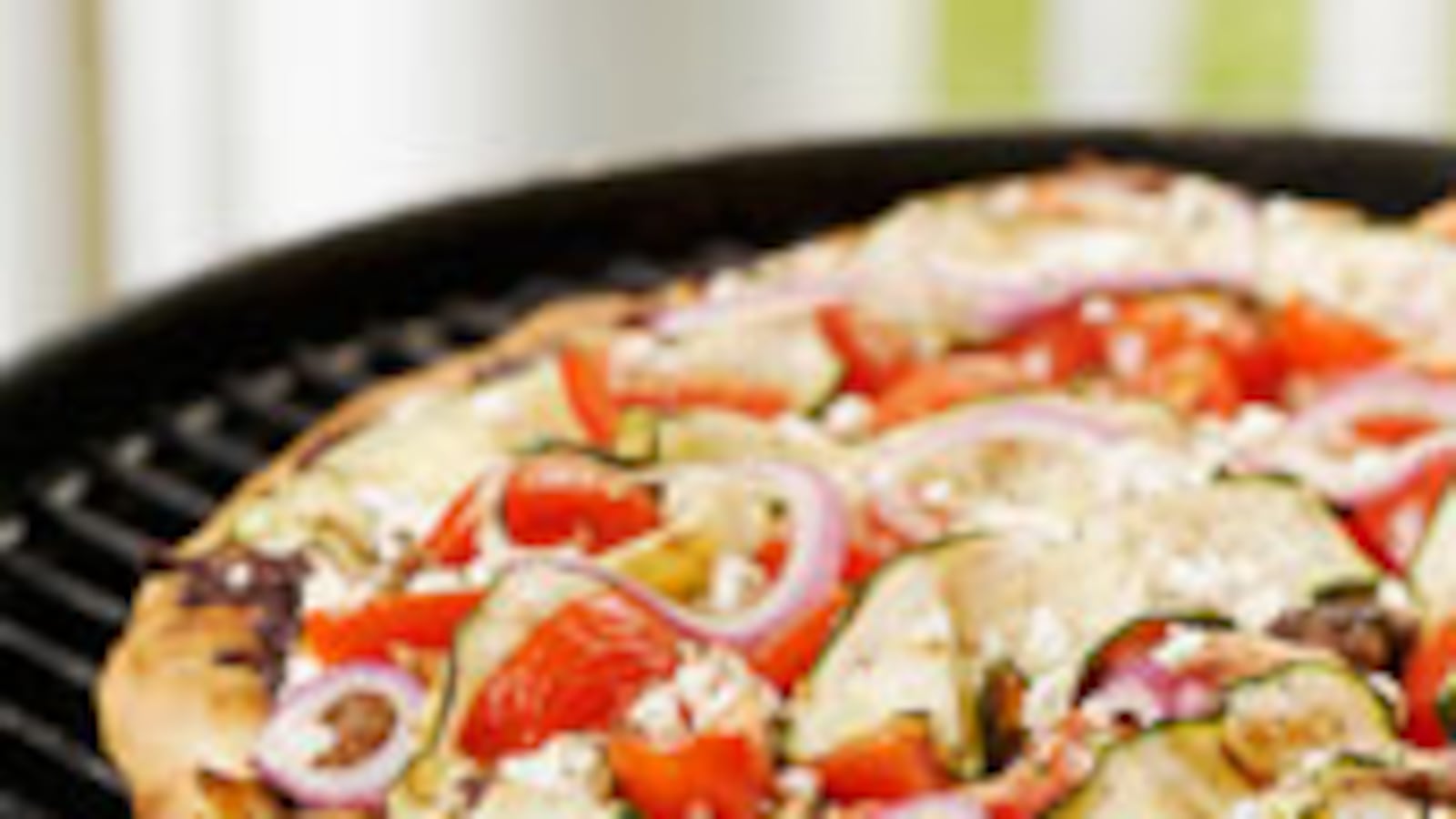
Pizza seems the "It girl "of the food world this month, but it has always been the most popular food in the world—even before the food mafia got tired of talking about ramps and bacon and started obsessing. I'm not actually annoyed about it, because I really like pizza, and the more pizza, the merrier. It's just that when too many words like "supple" and "multi-dimensional" and "poignant" and "flinty" get used about pizza, we should perhaps take a moment to remember that we are talking about...pizza. It is certainly interesting to talk about all the cool artisanal pizza-making going on out there. But it's also kind of fun to make fun of the navel-gazing-ness of some of it.
“When too many words like “supple” and “multi-dimensional” and “poignant” and “flinty” get used about pizza, we should perhaps take a moment to remember that we are talking about...pizza.”
Anyone with children is somewhat of a de-facto pizza expert, even if it's not fancy shmancy pizza with hand-milled Caputo Tipo 00 wheat pizza flour—wheat pizza flour air-lifted from Naples, and buffalo mozzarella made from the milk of buffalo who were introduced to Mozart in the womb. Not that there's anything wrong with that. In fact, that kind of pizza is GREAT. But lots of other kinds of pizza are also GREAT. In fact, even bad pizza is still a little great.
There are so many different kinds of pizza, it would be ridiculous to try and catalog pizza in all of its many forms here. Famously, in 1982, legendary, visionary chef Wolfgang Puck put (gasp) crème fraîche, smoked salmon, and a scoop of caviar on one of his pizzas, and this moment is largely considered by many to be the moment where the definition of pizza was deconstructed. But I’m getting ahead of myself; let's talk about tomato and cheese pizza, for the moment. And more specifically, let's talk about grilled pizza, one of the most magical things you can do with your grill this summer.
When it comes to making pizza at home, most of us are left with our plain old stoves—since a wood- or coal-burning pizza oven isn’t a standard kitchen appliance—which (even with a pizza stone) often leave us wanting. But if you have access to a grill, you can become part of the new generation of pizza masters.
Two things to keep in mind are: medium high heat (too hot: burned pizza; too low: soggy, and possibly sticking issues) and the initial crust flip. This is key. Flipping the crust after two minutes or so means that the top of the pizza dough will have firmed up, so that you can layer on your cheese and whatever else you fancy, and not end up with a disappointing wet, undercooked layer of dough between the bottom crust and the toppings.
So:
1) Make or buy the pizza dough.
2) Let it rise.
3) Punch it down, and stretch it out so that the crust is quite thin. Patch together rips as you can; you'll probably need to let it relax a bit in between stretches so it doesn't keep bunching back up.
4) Rub it lightly with olive oil, and flip it onto a medium-hot grill (carefully straightening out creases and folds that occur during this action). Brush the upward-facing side lightly with more olive oil.
5) Cover the grill and peek after one minute, and every 30 seconds after that. Once the bottom is firm enough to hold together, and you've got those light golden grill marks going on, flip the crust. Move decisively, but not too aggressively. If it breaks, you can have two smaller pizzas (and you can also get the hang of this whole process by starting off with smaller balls of dough, and making smaller pizzas).
6) Quickly layer on the toppings of your choice. Ain't nothing wrong with tomato sauce and cheese. Ain't nothing wrong with chopped blanched broccoli, sliced black olives, and sautéed onions, in addition to that. Or pepperoni. Or hit the figs and prosciutto and blue cheese. Close the lid, let it go for 3-4 minutes, but don't stray too far. Pizza is not the most forgiving item you can put on the grill. Check it then, and keep checking every minute thereafter, until the bottom is browned and crispy, the toppings are melted, and the middle is cooked through. If you've stretched your dough thin enough, you should achieve all of this at the same time. If the middle needs a little more cooking, but the bottom and top are good, lower the heat, and let it cook, covered, for a couple more minutes.
Or by all means feel free to go all Wolfgang on your pizza. Break out the smoked salmon and beluga (post heat, of course). It's your pizza and it's all good.

Basic Pizza Dough by Mark Bittman
You can knead this dough with a mixer (use the dough hook) or by hand, but the food processor is so quick and easy. This is the simplest, most basic pizza (and bread) dough you can make. Olive oil makes smoother, more flavorful dough and a slightly cracklier crust but you can omit it if you like—just add a little more water to the dough if you do.

Pizza Dough for Grilled Pizza by Diane Morgan and Rony Gemignani
For this dough, you can double the recipe so you have an extra portion to freeze for an easy weeknight meal or spur-of-the-moment entertaining. This dough is easy to work with, the texture and crispness of the crust is fabulous, and the subtle flavor that comes from the addition of rye flour makes the crust distinct and delicious. Look for rye flour in bulk at natural-foods stores. Substitute whole-wheat flour, if you prefer.

Grilled Pizza with Fig Jam, Prosciutto, Blue Cheese and Arugula by Diane Morgan and Rony Gemignani
Fig jam is an unbelievable partner to cheese and/or prosciutto, and in that case, both. It serves as the “glue” on the crust to hold the prosciutto and blue cheese, which are scattered over the top.

Grilled Pizza with Smoked Salmon, Red Onion, and Chive Crème Frâiche by Diane Morgan and Rony Gemignani
The Wolfgang-inspired masterpiece. Do try this once. Perfect for casual summer parties, it also makes a great appetizer, cut into narrow wedges and served with a cold sparkling Prosecco or French Chardonnay.

Basic Tomato Sauce by Sheila Lukins and Julee Rosso
This is a good light base sauce for pizza because it is just the right thickness and its flavorings will not overwhelm other toppings.
Plus: Check out Hungry Beast, for more news on the latest restaurants, hot chefs, and tasty recipes.
Katie Workman is editor in chief and chief marketing officer of Cookstr.com, a Web site devoted to great, tested recipes from chefs and cookbook authors. She writes about food for various blogs and websites. Katie is on the board of City Harvest, and actively involved in Share Our Strength. She lives in New York City with her husband her two boys, ages 6 and 9.






